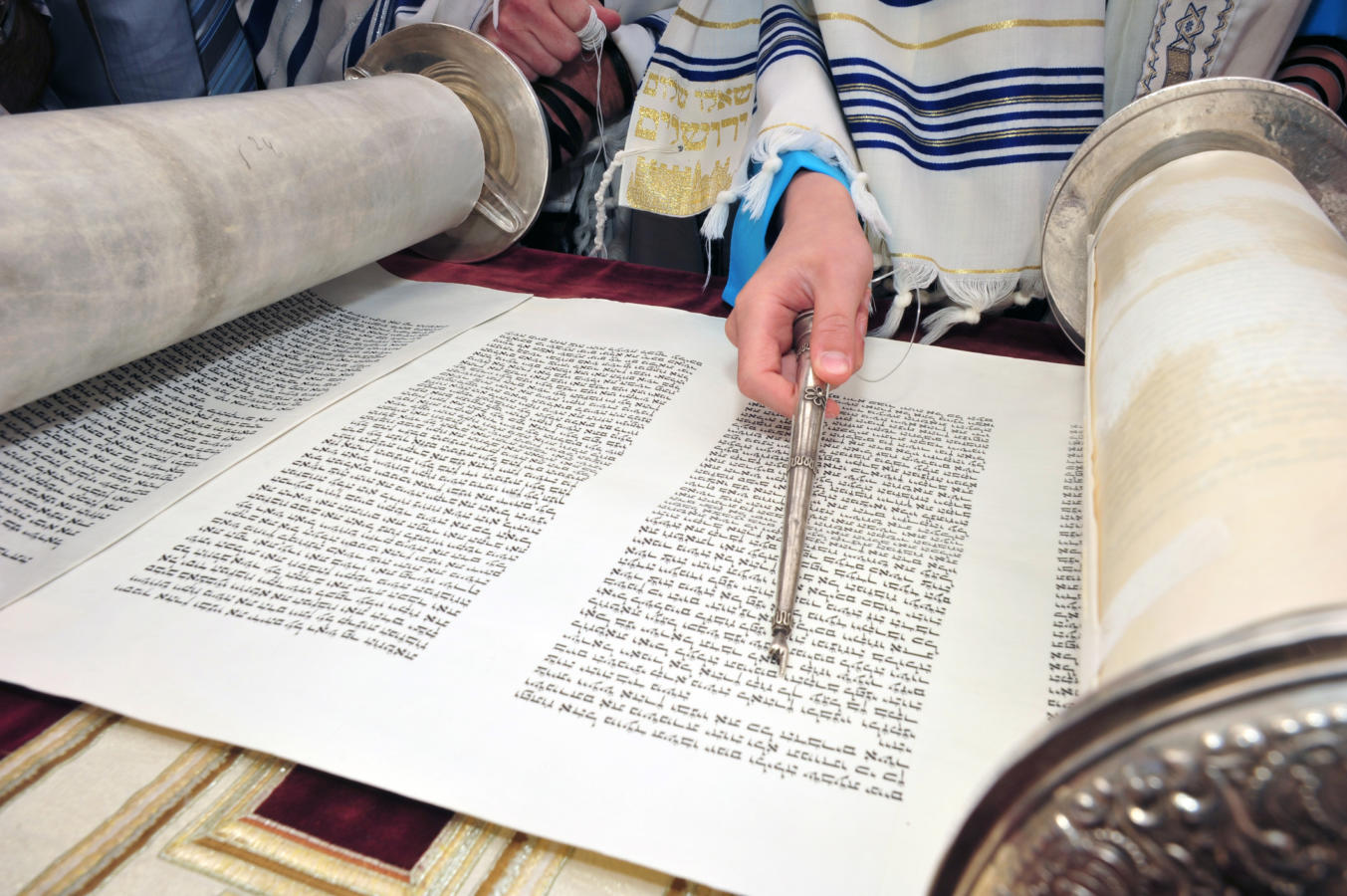Question: I’ve been to synagogues where groups of people are called up together for one aliyah to the . Sometimes it’s a couple who are about to get married, having a joint aufruf. Other times it’s a whole confirmation class, reciting one blessing in unison. Does this practice have any halakhic justification? Where did it come from?
–Charlie, Washington DC
Answer: I used to have a teacher who told me that the answer to every question in Jewish law is, “There’s a mahloket“–it’s up for debate. This holds true in regards to your question, Charlie. Some synagogue rabbis have decided to offer joint aliyot in their congregations, and others have chosen not to. Who’s right and who’s wrong? It depends who you ask, of course!
Joint aliyot have become a popular practice because communities often use an to honor a group of people, such as a couple who has just gotten engaged, or the parents and grandparents of a bar/bat . There are a limited number of aliyot during every service, so instead of calling up every member of a family separately, some congregations began calling up one whole family unit at a time. This is an accepted practice in Reform Temples, and is not done at Orthodox synagogues. In the Conservative movement, there are some congregations where joint aliyot are sanctioned, and others where they are not.

Help us keep Jewish knowledge accessible to millions of people around the world.
Your donation to My Jewish Learning fuels endless journeys of Jewish discovery. With your help, My Jewish Learning can continue to provide nonstop opportunities for learning, connection and growth.
As is the case for many issues within the Conservative movement, two responsa were published by the Committee on Jewish Law and Standards that address this issue. One was in favor of joint aliyot, and one was against.
The responsum in favor of joint aliyot bases is based on the fact that the Torah service has evolved over time. Public Torah reading goes back at least as far as the 2nd century BCE. At that point, a blessing was recited before the first aliyah, and after the last aliyah. Unlike how we do it today, people who were called up for aliyot were in fact being called up to read from the Torah, not to make a blessing. Then, in Amoraic times the service was changed so that everyone who was called up to read also made a blessing. This way those who arrived late to synagogue or left early got to hear both blessings (Megillah 21a-b). Soon, there were not enough people who could competently read out of the Torah without preparation, so the person who received the aliyah was no longer asked to read the Torah, a job that was given to someone in advance.
The Conservative argument in favor of joint aliyot notes that if extraneous blessings could be added in Amoraic times, there isn’t a problem of adding more people saying blessings now. And because aliyot are generally given to couples or groups celebrating happy occasions, such as births, bar/bat mitzvahs, and weddings, allowing more than one person to participate in an aliyah is adapting the service for a very positive reason.
The argument against more than one person having an aliyah together has to do with two issues: brakha levatala, or an unnecessary blessing, and trei koli, two voices that sound like one.
The argument based on brakha levatala is that since only one person is halakhically required to recite the blessing for an aliyah, extra people participating in an aliyah are saying unnecessary blessings. Unnecessary blessings are problematic because blessings contain the name of God, and one of the Ten Commandments is to not take God’s name in vain.
The issue of trei koli is a little more complex. The Jerusalem (Berakhot 5:3) says that two people should not read from the Torah at once because “two voices cannot enter one ear,” meaning that the ear can’t distinguish between the two voices. It is important to hear all of the blessings and the Torah portion distinctly. If one hears two voices speaking at once, and cannot distinguish one from the other, then that person has not fulfilled his or her obligation to hear the necessary reading. Therefore, it would not be permissible for more than one person to have an aliyah at once.
I consulted with Rabbi Miles Cohen, a professor of synagogue skills and Hebrew grammar at the Jewish Theological Seminary, to hear his thoughts on this question.
Rabbi Cohen told me that he personally is opposed to group aliyot, not just for halakhic reasons, but also because he thinks it gives the wrong understanding of what it means to have an aliyah. “An individual aliyah carries with it the idea that each Jew has the responsibility to take the role of Rabbeinu in his/her community, if even for just a few moments,” Rabbi Cohen told me. “The oleh/olah [person called up for the aliyah] is not the one honored. Rather, the oleh/olah pays honor to the Torah by virtue of wanting to be near the Torah and teach from it.”
So there you have it. Some say it’s halakhically permissible, and others say it’s forbidden. But either way, if you’re getting an aliyah by yourself or with others, it’s good to remember that the honor goes to God and the Torah, and not little old you. Sorry, Charlie.



